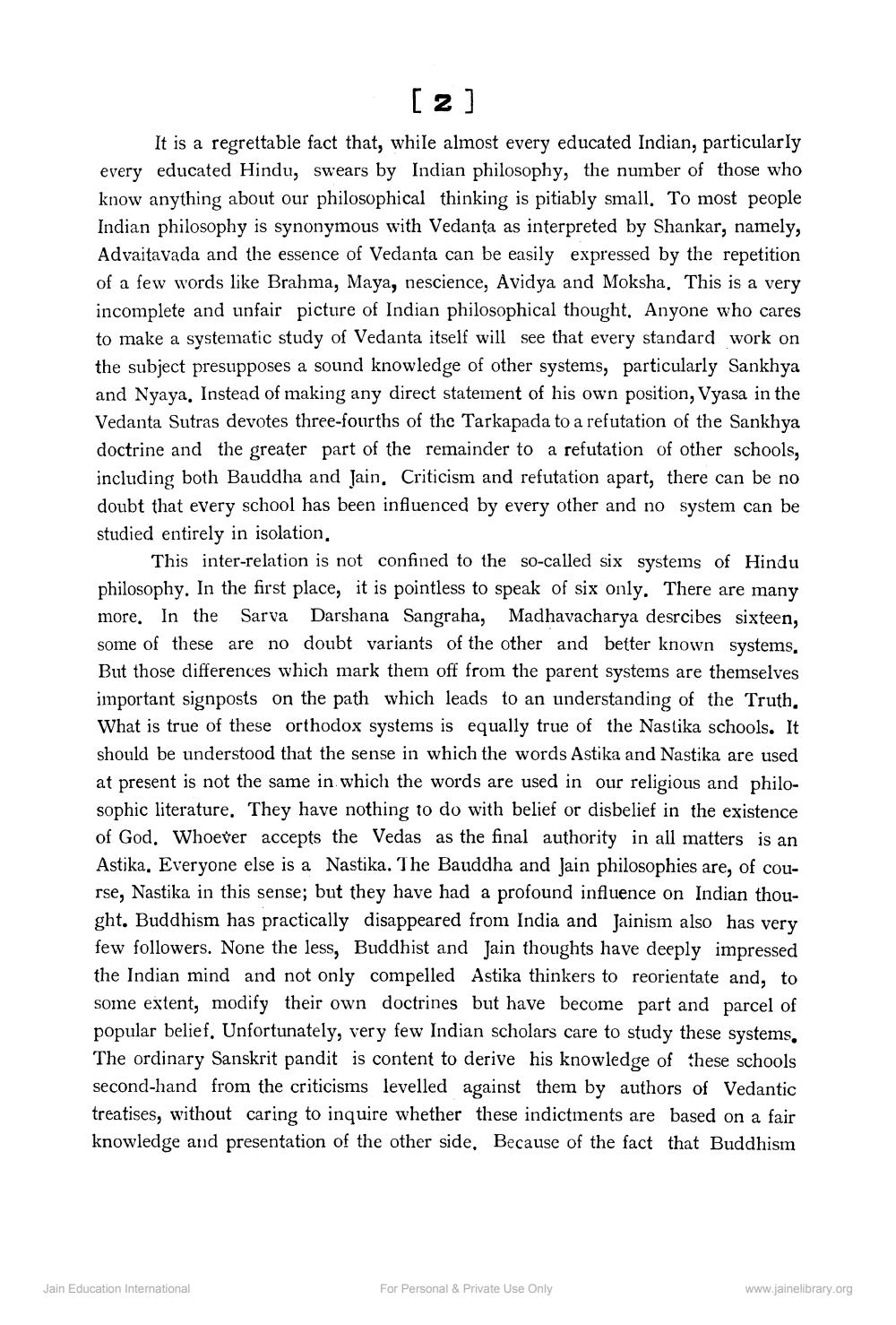________________
[ 2 ]
It is a regrettable fact that, while almost every educated Indian, particularly every educated Hindu, swears by Indian philosophy, the number of those who know anything about our philosophical thinking is pitiably small. To most people Indian philosophy is synonymous with Vedanta as interpreted by Shankar, namely, Advaitavada and the essence of Vedanta can be easily expressed by the repetition of a few words like Brahma, Maya, nescience, Avidya and Moksha. This is a very incomplete and unfair picture of Indian philosophical thought. Anyone who cares to make a systematic study of Vedanta itself will see that every standard work on the subject presupposes a sound knowledge of other systems, particularly Sankhya and Nyaya, Instead of making any direct statement of his own position, Vyasa in the Vedanta Sutras devotes three-fourths of the Tarkapada to a refutation of the Sankhya doctrine and the greater part of the remainder to a refutation of other schools, including both Bauddha and Jain, Criticism and refutation apart, there can be no doubt that every school has been influenced by every other and no system can be studied entirely in isolation,
This inter-relation is not confined to the so-called six systems of Hindu philosophy. In the first place, it is pointless to speak of six only. There are many more. In the Sarva Darshana Sangraha, Madhavacharya desrcibes sixteen, some of these are no doubt variants of the other and better known systems, But those differences which mark them off from the parent systems are themselves important signposts on the path which leads to an understanding of the Truth, What is true of these orthodox systems is equally true of the Nastika schools. It should be understood that the sense in which the words Astika and Nastika are used at present is not the same in which the words are used in our religious and philosophic literature. They have nothing to do with belief or disbelief in the existence of God. Whoever accepts the Vedas as the final authority in all matters is an Astika, Everyone else is a Nastika. The Bauddha and Jain philosophies are, of course, Nastika in this sense; but they have had a profound influence on Indian thought. Buddhism has practically disappeared from India and Jainism also has very few followers. None the less, Buddhist and Jain thoughts have deeply impressed the Indian mind and not only compelled Astika thinkers to reorientate and, to some extent, modify their own doctrines but have become part and parcel of popular belief. Unfortunately, very few Indian scholars care to study these systems, The ordinary Sanskrit pandit is content to derive his knowledge of these schools second-hand from the criticisms levelled against them by authors of Vedantic treatises, without caring to inquire whether these indictments are based on a fair knowledge and presentation of the other side. Because of the fact that Buddhism
Jain Education International
For Personal & Private Use Only
www.jainelibrary.org




